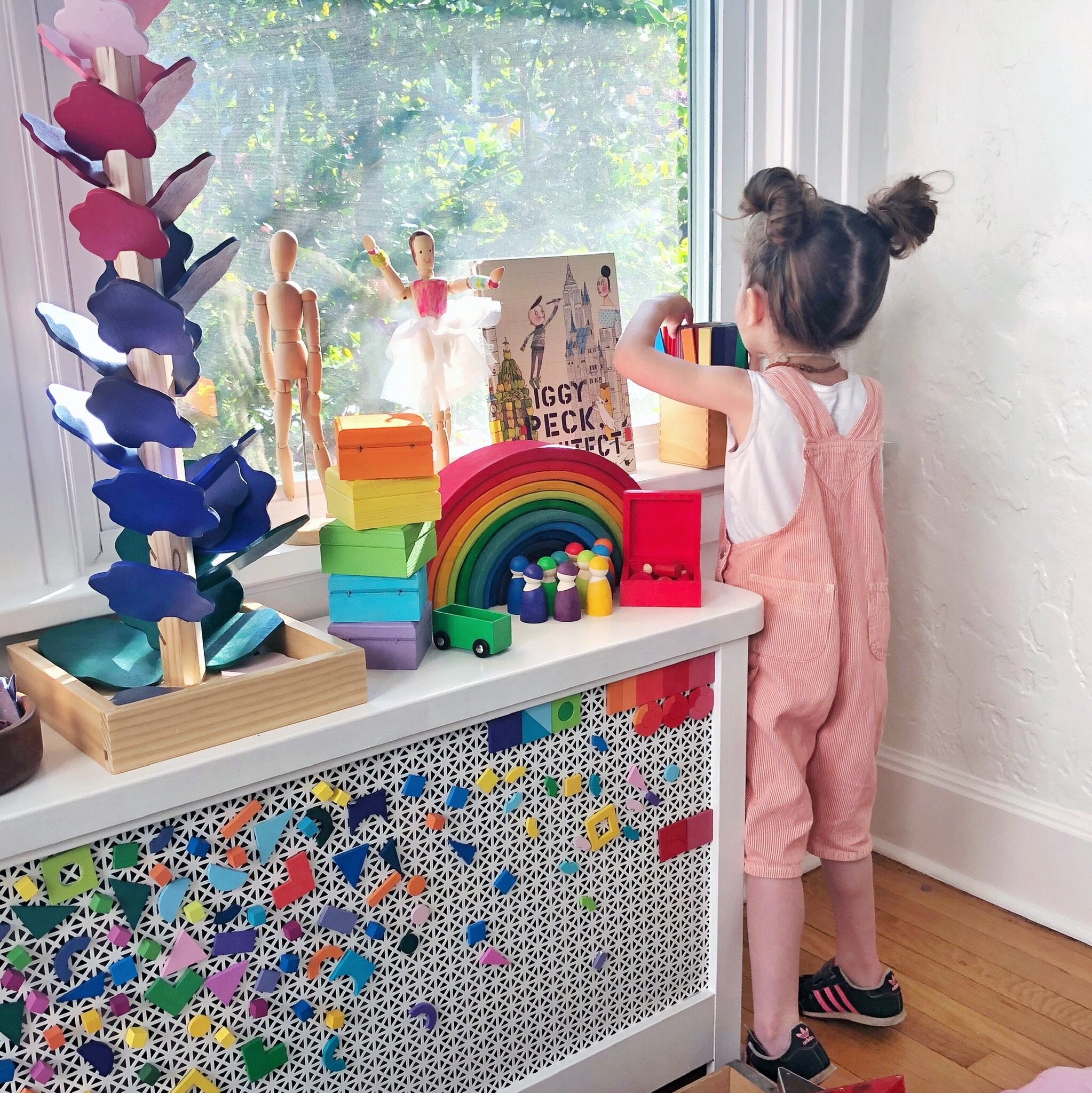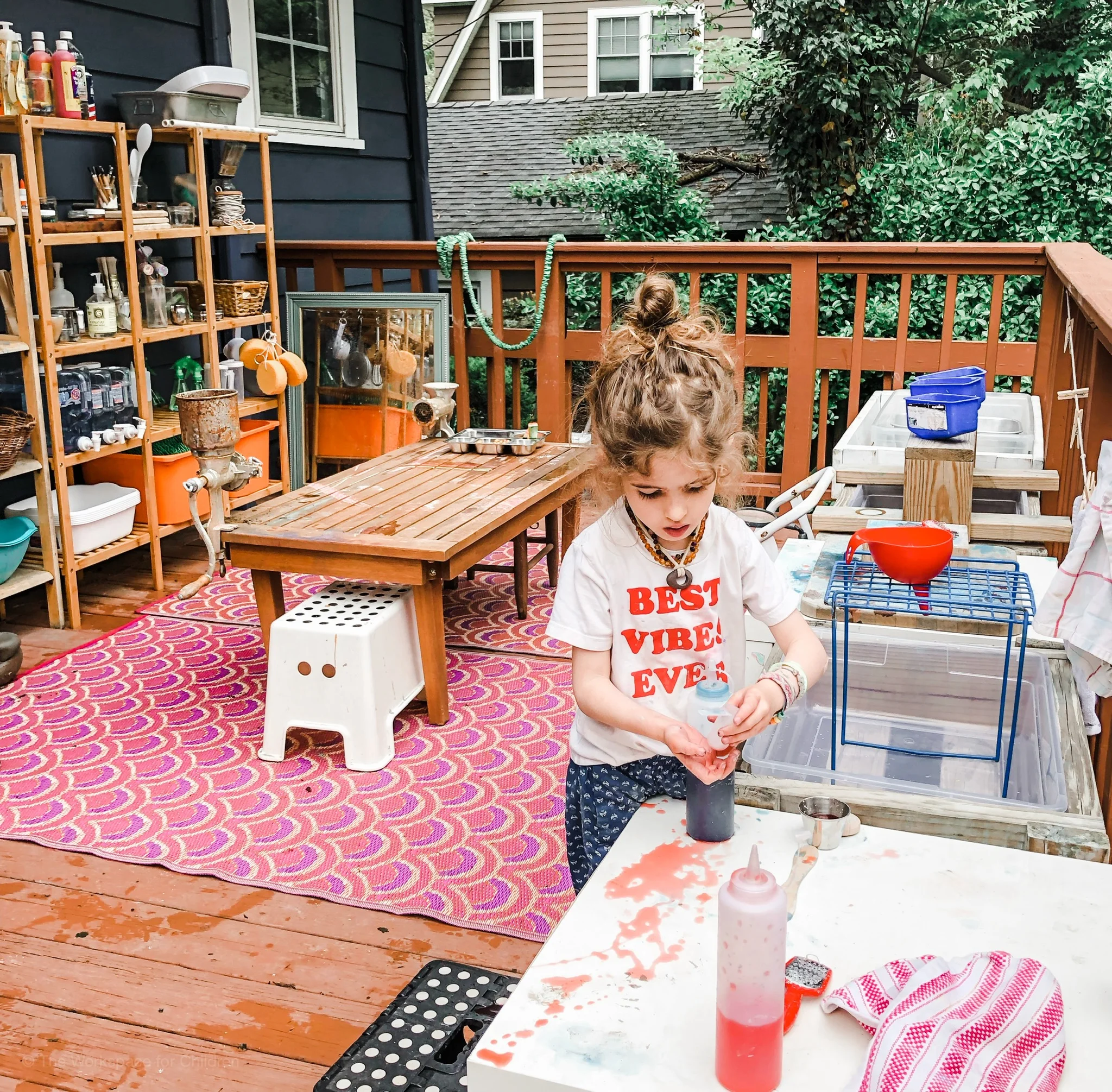4 Strategies to Survive Your Child’s Tantrums
/I wish I could tell you that as your child grows, they stop having huge eruptions of feelings and tantrums disappear, but they don’t. They still have tantrums… those tantrums just take on a new form. They might not trash your street cred at the playground as they kick and flail anymore, but they sure will erupt in the mall or storm off loudly in a restaurant.
It’s been a while since I’ve lived through a public toddler throwdown, but I’m here to tell you that the feelings stay with you. The shame, embarrassment, anger, frustration… You don’t forget what that feels like.
The good news? Tantrums are completely normal and healthy. They can even be an important indicator of what your child might need. Young kids are still learning how to process their emotions and can have a difficult time staying regulated when things don’t go their way.
You don’t need to be scared of your child’s big emotions! Learning how to manage your child’s tantrums now can serve you well into the future!
Here are 4 tried and true strategies to manage your child’s tantrums.
1. Stay Calm
Staying calm means that you are a safe space for your child. Keeping yourself regulated allows you to be there for your child, rather than going off the rails yourself. When you stay calm, your child will know that they can always come to you for support.
If this has proven to be difficult in the past, try using a mantra or taking deep breaths - both can help. Remembering that tantrums are normal and that you are not the only one with a tantrum-throwing mini human also helps.
This step can take time to master. If you lose your cool, you're not a bad parent. Keep practicing.
2. Hold Your Limit
When you’re deep in a tantrum with your child, it’s easy to forget your limits. But, deciding early on what your limits are going to be in these situations and holding these limits is an important step. Practice using these phrases:
“It’s my job to keep you safe.”
“I won’t let you hit.”
“I’m going to help you stop.”
“I am going to move you now.”
3. Empathize
I know… empathizing with your little one while they are throwing a tantrum can seem impossible at times, especially while you are trying to hold a boundary. But it is totally possible to do both. Try these phrases:
“It is so hard right now, I’m going to help.”
“It is so hard to leave the playdate. I’m going to help.”
4. Tell a Reflective Story
Later when your child is calm and has had time to regulate their emotions, reflect on what happened earlier that day. It’s important to do this step without placing blame. Use only facts to help your child understand what they were feeling and what you did to help them stop their (less than favorable) behavior. This could sound like:
“You didn’t want your brother to take that toy. You got angry and hit him! I was right there and wouldn’t let you hit him again. It was too hard for you to stop, so I stopped your body for you. You are still learning about what to do when you get angry. I am glad I was there to help. I love you.”
Books that help us better understand feelings
SUBSCRIBE TO MY NEWSLETTER
WANT TO SEE MORE BLOGS LIKE THIS ONE? GREAT! CHECK OUT THE POSTS BELOW!
CHECK OUT OUR EBOOKS!
THE PLAY PLAN
The Play Plan is an ebook containing play invitations that are easy to set up, inexpensive, and apply to children of all ages. The 25 play prompts are divided into five categories and use items that you most likely already have at home. These play prompts consider children of all ages, all developmental stages, and all learning capabilities. Each prompt can be tailored to fit your unique child’s needs. Play is meant to be simple.
$28
QUIET TIME AND INDEPENDENT PLAY EBOOK
This downloadable ebook is your personal guide to Quiet Time and Independent Play. This ebook will teach you the basic steps to implementing a Quiet Time and Independent Play strategy that works. The guide teaches you my proven 5 step method for implementing a daily break without using screens. (Guide includes 5 bonus invitations to play.)
$27










